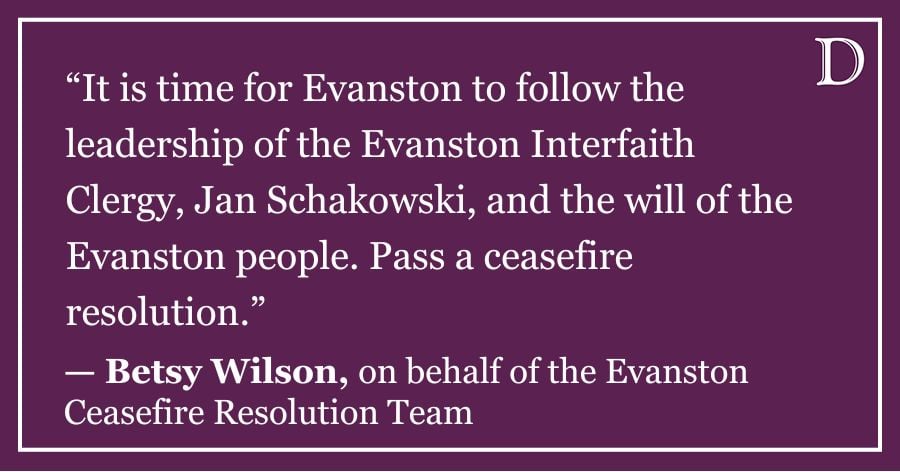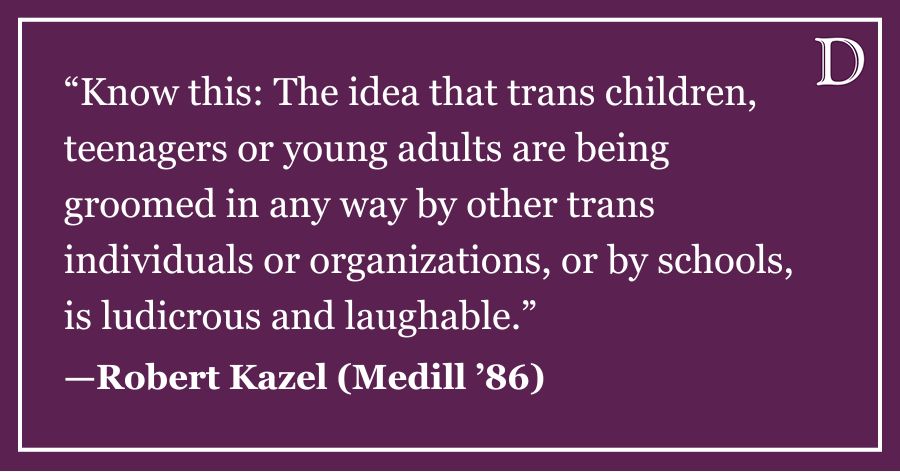A scene I’ve noticed unfolding in the classroom with increasing frequency is the lecture standoff.
Allow me to describe this event: Professor explains concept. Professor asks question to ensure class has grasped concept. Professor asks question five or six more times, in modified form, and makes futile attempts to make eye contact with some of his or her brighter students. Not a single response to be had.
Professor starts to feel like Jaime Escalante from “Stand and Deliver.” Professor finally resorts to clicker questions, which strike at the hearts of Northwestern students because they can affect their grades and by association, their self-worth, their future and their blood pressure. The result: 90 percent of the class responds with the correct answer.
Does this sound familiar?
There is a wide variety of reasons for this. Students may not feel sure of their responses, but this theory is somewhat unlikely because most students come well-prepared for lecture. The more probable reason is that even though they know the answer, some of them may simply not want to share it, and others feel that the question posed was too easy to warrant their time or a response from them. This is fallacious in my opinion because it is disrespectful to the instructor who is deliberately pausing the lecture to ask said question, and it implies that although you know the answer, you are too good to give it.
Technically speaking, everyone can do what they want. But I believe that when an instructor poses a question, it means he or she is reinforcing an important concept, and if you know the answer, it would not kill you to speak up (and enunciate while you’re at it, rather than speaking into your palm).
This is beneficial not only for students who may be struggling with a concept but also those who don’t know how to ask. It is also beneficial for you because it further cements your knowledge. Articulating ideas or concepts that you have already learned helps you just as much as it helps other people.
And answering in a timely manner prevents a discontinuity from occurring, as is often the case when the answer comes five minutes after the question was posed and everyone has lost interest. Responding is in every student’s best interest and helps keep the discussion and learning going.
Also, if you are asked a question by another student, please afford an adequate response. If you know the answer, and it isn’t a dilemma of academic dishonesty, just answer it. If you don’t know the answer, kindly respond with, “I’m not quite sure,” or something to that effect. Whatever you do, don’t pretend you didn’t hear the person right next to you and stare blankly into space; I’m sure that isn’t part of the “vibrant, collaborative atmosphere” so many of us envisioned in our application essays.
Antonio Petkov is a McCormick freshman. He can be reached at [email protected]. If you want to respond publicly to this column, send a Letter to the Editor to [email protected].














